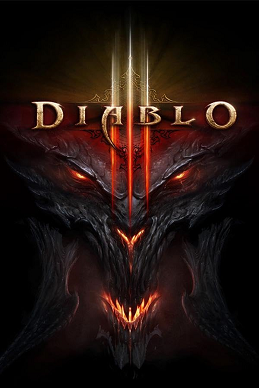 |
| And the heavens shall tremble. |
8% crit chance increased for energy twister? Say hello to millions of gold.
I have pondered the meanings of Diablo 3 for a long time. What makes it so good/bad? What did I truly miss about Diablo 2 (Sadly, as I am a young one I have never played D1) Well- I've finally narrowed it down, after much meditation (seriously) and decided on what to post
Rating: 5.6/10
Why such a low rating? Diablo 3 was, without a doubt, the most expected game of all time, and Blizzard failed to deliver. Why was it so bad? Well in all honesty- I enjoyed Diablo 3. The thrill and anxiety of hearing the unforgettable *Twang* as you receive that Legendary drop. Who cares if you know its going to reveal bad- everyone enjoys that deep gold laser shooting up into the sky.
After a long hard day of slaying, you return to camp to see what you have found. Crappy rare. Crappy rare. Crappy rare. Why did I pick that up? I could sell that. Every so often, you get a thrill in your heart- could it be? You review the stats that have been revealed- Holy crap! That was an amazing item! I'm sure everyone can relate to this scenario, and especially when you're in a group of friends, its prideful to be on the top *dusts knuckles*. I, however, want to pose the biggest question of all time: the reason for my low Diablo 3 rating.
Why are you getting better equipment?. . .
In Diablo 2, the first answer that comes to mind is: To kill stronger monsters! A worthy and noble goal to those avid fans of the Hack-And-Slash game play. The difference is in Diablo 2. . . It was Different. Perhaps that sentence was a bit perplexing, but let me reiterate and send my point across- playing Diablo 2 was a different experience every game. It held a sense of childlike wonder when you went into the unknown and explored every time you started the game. That is the nostalgia we gamers feel when we play Diablo 2 today.
In Diablo 2, it was about killing the monsters. In Diablo 3, It's about the loot.
The story can speak for itself, for every single critic out there will agree with me that it was probably the worst thing Blizzard has ever done.You don't even have one- You're goal is to chase down Ba'al and Azmodan and send them into oblivion- only to find out that the evil is now all together and you have to fight him in heaven.
The whole story can be summed up with just a few sentences, and its not even a summary. That is, legitimately, your entire plot line. You knew what characters were evil, what characters were good, and what characters were going to help you every step of the way. It was pathetic that the only surprise I had in the entire plot line was that the emperor helped me, and in hindsight, I should have caught that too.
In addition to the lack of story, the caverns and dungeons were the same every time. You knew what was (or what could be) down in every cavern- the only difference was the loot. To add to the monotony, once you get into inferno mode, your stuck with having to have a specific build. In Diablo 2, your skill tree could horribly suck- and that's okay. You could still survive and beat the game with a build that was fun- but not effective. In Diablo 3 however... That's not the case. Until you have enough gold to buy Deity-Level equipment, you can't have a fun build. Oh, and did I mention that you won't get that much gold unless you have a friend helping you or- get this -you buy gold from Blizzard's auction house. Really Blizzard? Why have you sunk that low?
So, if you're a moral gamer like me, you don't buy gold from the auction house. Hell (see what I did there?) forbid you play the game without using it though. You'll never get past Nightmare. Blizzard developed a crafty algorithm to make 99% of drops unusable. So you hit Hell difficulty- here's what you have:
Wizard: Starting on CM or Blizzard kite build
Barbarian: WW barb.
Monk: You didn't play a monk until patch 1.07
Witch doctor: acid. lots of acid. Or evil teddy bear summons.
Demon hunter: Traps and sentries.
Go on. Tell me you played something different. You're lying. Unless you got help from a friend or used the auction house, and even if you DID use the auction house, those were the only builds you did. If you use an ineffective build- You die. You aren't even at the highest difficulty yet!
Do you know whats missing from Diablo 3 that would have made it so great? Fun. Its not there.
You *must* have a cookie cutter build unless you want to buy items from the auction house, and even if you do, most people still use the cookie cutter builds. Diablo 3 isn't a game- It's a Job. Why are you coming home from work, just to work again? It doesn't make any sense. Although it's a recent release, Torchlight 2 (will be reviewed upcoming) was a far better game, delivering what Diablo 3 couldn't and adding more to it.
Also, you have to be online to play. That's all I need to say about that subject.
-The F.A.W.X.E.




